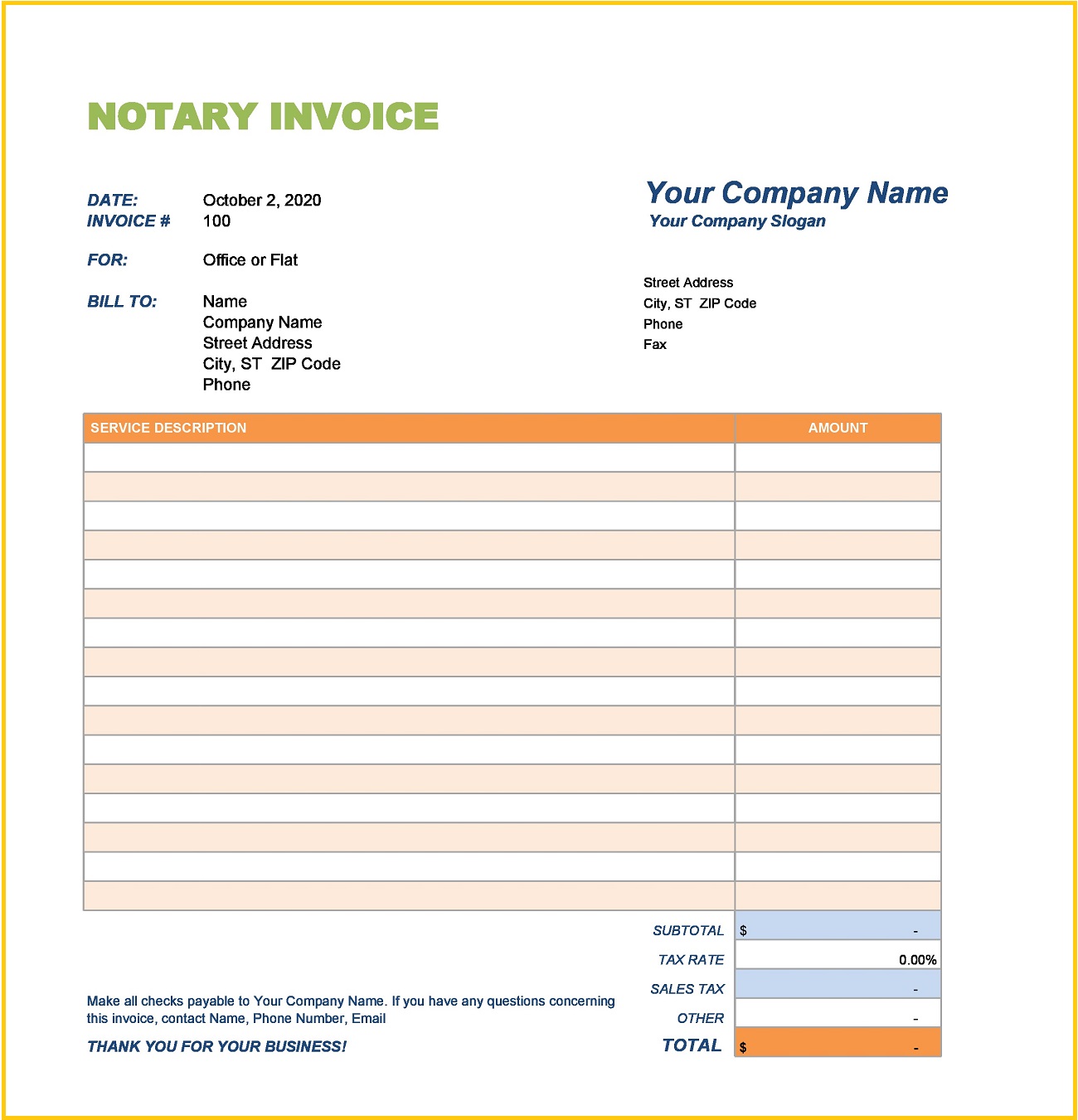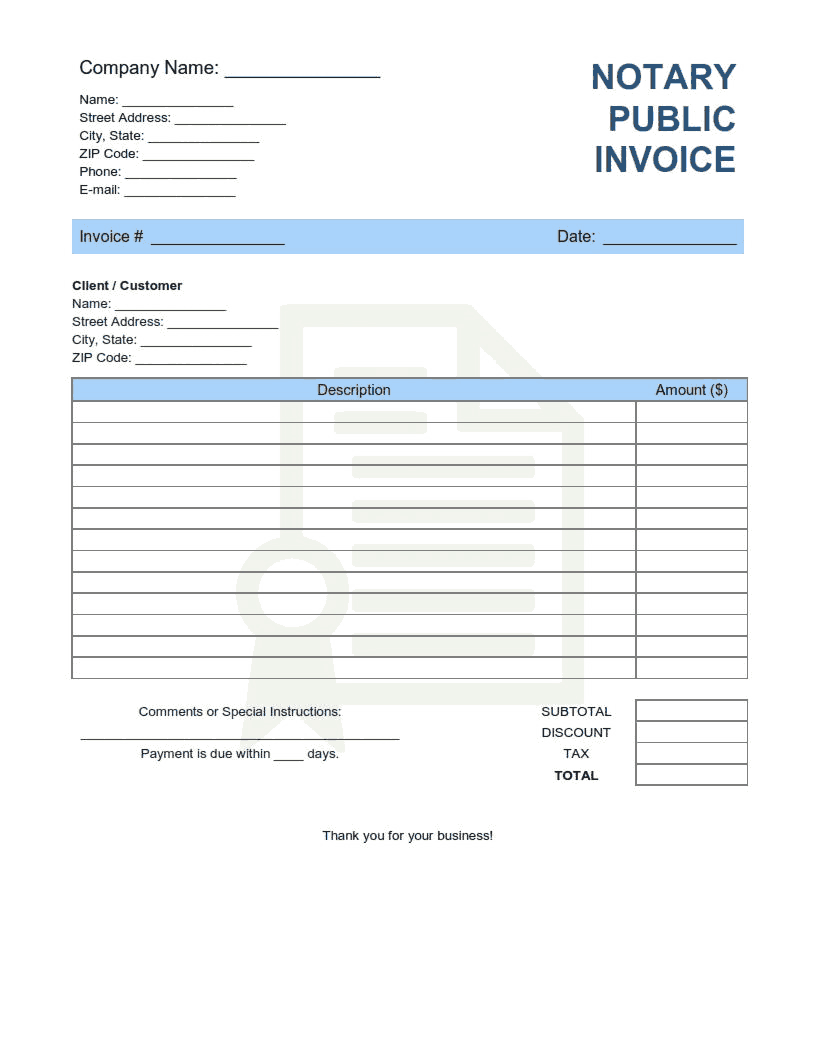
As a notary public, one of the most important aspects of your business is ensuring that you have a clear and professional invoicing process. Notary invoices serve as a record of your services and the fees associated with them, and they are essential for maintaining transparency and accountability with your clients.
In this article, we will explore the significance of notary invoices and provide you with a step-by-step guide on creating them.
What is a Notary Invoice?
A notary invoice is a document that outlines the services provided by a notary public and the associated fees. It serves as a record of the transaction between the notary and the client, ensuring that both parties have a clear understanding of the services rendered and the amount charged. Notary invoices typically include information such as the notary’s name and contact details, the client’s name and contact details, a description of the services provided, the date of the transaction, and the fees charged.
Notary invoices are important for several reasons. Firstly, they provide a clear breakdown of the services provided and the fees charged, which helps to avoid any misunderstandings or disputes between the notary and the client. Secondly, they serve as a record of the transaction, which can be useful for both parties in the event of any legal or financial issues that may arise in the future. Lastly, notary invoices contribute to maintaining a professional image and instilling trust and confidence in your clients.
How to Create a Notary Invoice
Creating a notary invoice can be a straightforward process if you follow a few simple steps. Here is a step-by-step guide on how to create a notary invoice:
1. Include Your Contact Information
Start by including your name, address, phone number, and email address at the top of the invoice. This ensures that your clients have all the necessary information to contact you if they have any questions or concerns.
2. Add the Client’s Information
Next, add your client’s name, address, phone number, and email address. It’s important to ensure that this information is accurate and up-to-date to avoid any confusion or delays in payment.
3. Provide a Description of Services
Clearly describe the services you provided to the client. This may include notarizing documents, administering oaths, witnessing signatures, or any other notarial acts. Be specific and provide as much detail as possible to avoid any ambiguity.
4. Specify the Fees
State the fees associated with each service you provided. This may include a flat fee for each notarial act or an hourly rate for more complex services. Make sure to include any additional charges, such as travel expenses or document preparation fees, if applicable.
5. Calculate the Total Amount Due
Add up all the fees to calculate the total amount due. Clearly state this amount on the invoice to avoid any confusion.
6. Include Payment Terms
Specify the payment terms, such as the due date and acceptable payment methods. You may also want to include any late payment penalties or discounts for early payment.
7. Provide Your Payment Details
Include your preferred payment method and any relevant payment details, such as your bank account number or PayPal email address. This makes it easy for your clients to make the payment.
8. Add Additional Notes or Terms
If there are any additional notes or terms that you want to include, such as your cancellation policy or any disclaimers, add them at the bottom of the invoice. This ensures that your clients are aware of any important information.
Sample Notary Invoice




Here is an example of a notary invoice:
- Date: [Date]
- Notary Name: [Your Name]
- Notary Address: [Your Address]
- Notary Phone: [Your Phone Number]
- Notary Email: [Your Email Address]
- Client Name: [Client’s Name]
- Client Address: [Client’s Address]
- Client Phone: [Client’s Phone Number]
- Client Email: [Client’s Email Address]
- Description of Services: [Description of services provided]
- Fee: [Fee for each service]
- Additional Charges: [Any additional charges]
- Total Amount Due: [Total amount due]
- Payment Terms: [Payment Terms]
- Payment Details: [Your payment details]
- Additional Notes: [Any additional notes or terms]
Conclusion
A notary invoice is an essential tool for any notary public. It provides a clear record of the services provided and the fees charged, ensuring transparency and accountability with clients. By following the step-by-step guide provided in this article, you can create professional and accurate notary invoices that will help you maintain a successful notary business.
Notary Invoice Template Word – Download